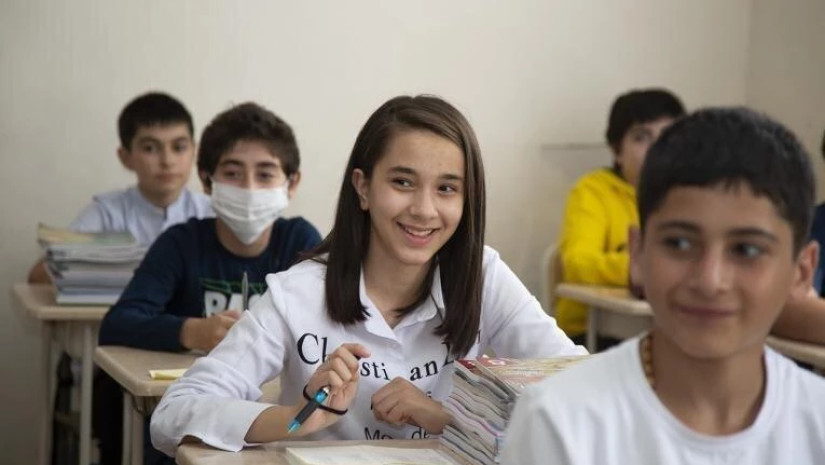The Interagency Coordination Council of Georgia has taken a decision, that the learning process will resume remotely from September 15 to October 4.
UNICEF Representative in Georgia Ghassan Khalil has responded to the decision of the Government of Georgia, he notes that Ghassan Khalil declares that closure of schools has been very harmful to children in terms of academic levels, as well as affects their social skills.
“UNICEF and WHO together and jointly are calling on all governments worldwide to open schools with in-person learning. UNICEF has been calling on since last year that schools must be first to open and the last to close down. There are hundreds of schools that children are regressing academically, but also their mental health is affected due to the closure of schools. When all sectors are open why should schools close down? Have we thought about thousands of students, who do not have an access to the internet, they will miss out their education and it will create huge problems? I have been in many regions of Georgia, one of them is Mestia, where children do not have access to the internet”, - UNICEF Representative in Georgia declares.
In addition, Ghassan Khalil calls on the Georgian government to think about the differentiated approach, as there are villages where COVID-19 positivity rate is very low and notes that those children must go to school for in-person learning.
“The quality of education is affected with online learning. That is why UNICEF encourages people to get vaccinated. We have agreed with the Ministry of Education and Science on a three-month intensive plan to get teachers vaccinated, this is what we should do. We should get vaccinated to protect ourselves, our loved ones and children rather than the closing of schools. It has been proven globally worldwide that schools are not a key driver for coronavirus transmission. Closure of schools has been very harmful to children in terms of academic levels, as well as online learning affects their social skills”, - UNICEF Representative in Georgia declares.
According to the official web-page of UINICEF, as millions of school children return to school across the European Region where the highly transmissible SARS-CoV-2 Delta variant is dominant, the WHO Regional Office for Europe and UNICEF Europe and Central Asia Regional Office call for schools to stay open and made safer by adopting measures to minimise transmission of the virus.
These measures include offering teachers and other school staff the COVID-19 vaccine as part of the target population groups in national vaccination plans, while ensuring vaccination of vulnerable populations. In addition, children aged 12 years and above who have underlying medical conditions that significantly increases their risk for put that at greater risk of severe COVID-19 disease must be vaccinated; improvements to the school environment through better classroom ventilation, smaller class sizes where possible, physical distancing and regular testing of children and staff, are other important actions.
“The pandemic has caused the most catastrophic disruption to education in history. It is therefore vital that classroom-based learning continues uninterrupted across the European Region. This is of paramount importance for children’s education, mental health and social skills, for schools to help equip our children to be happy and productive members of society”, Dr Hans Henri P. Kluge, WHO Regional Director for Europe explains.
“It will be some time before we can put the pandemic behind us but educating children safely in a physical school setting must remain our primary objective, so we don't rob them of the opportunities they so deserve. We encourage all countries to keep schools open and urge all schools to put in place measures to minimize the risk of COVID-19 and the spread of different variants.”
















